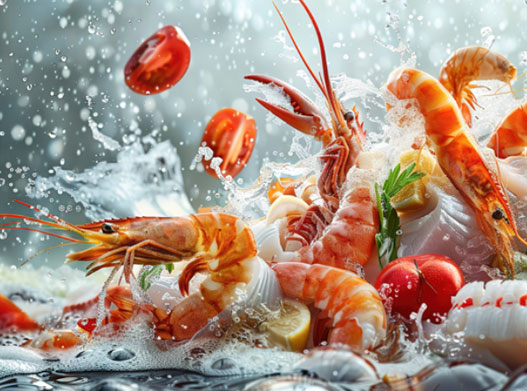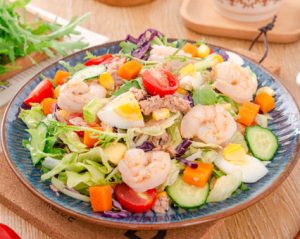With the improvement of people’s living standards and the enhancement of health awareness, the demand for high-quality and high-nutrition seafood is rising. Fresh aquatic products and frozen aquatic products constitute the main consumption structure of consumers. In addition, convenient and fast prepared dishes are favored in response to the accelerated pace of modern life. Prepared seafood products have become a new hot point in the market due to their convenience, fast, nutrition and health.



Frequent Questions:
The problem of spoilage in the processing of seafood is mainly caused by the growth and reproduction of microorganisms and the action of enzymes.
Microbial Contamination: seafood is susceptible to bacterial contamination during capture, handling, transportation, and marketing. Under the right conditions, these bacteria can grow rapidly and break down proteins, amino acids and fats in the fish, producing odorous and toxic substances that can lead to spoilage.
Role of Enzymes: fish contain a variety of enzymes that remain active after the fish dies. They break down the proteins in the fish, speeding up the spoilage process. Especially in a warmer environment, the activity of enzymes is enhanced, which will break down fish meat faster.
Moisture Content: seafood fish usually contain higher levels of moisture, which provides a good environment for bacteria to grow. The higher the moisture content, the faster the bacteria grow and the faster the spoilage process.
Fat Content: fish have a high fat content in the body, and the fat is easily oxidized by oxygen, resulting in a change in the color of the fish, affecting the taste, and the oxidation products may produce an off-flavor together with the protein decomposition products.
Solutions:
Our natural high vinegar is suitable for aquatic meat sterilization, processing, etc. In addition to sterilization, natural high vinegar also has deodorizing and antiseptic effects. Our natural preservatives and compound preservatives inhibit the action of enzymes. This is mainly by interfering with the enzyme system of microorganisms, disrupting their normal metabolism, inhibiting the activity of them, changing the permeability of cell plasma membranes, or coagulation and denaturation of microorganisms’ proteins, which interferes with their survival and reproduction to delay microbial growth or spoilage caused by chemical changes.
Free
sample